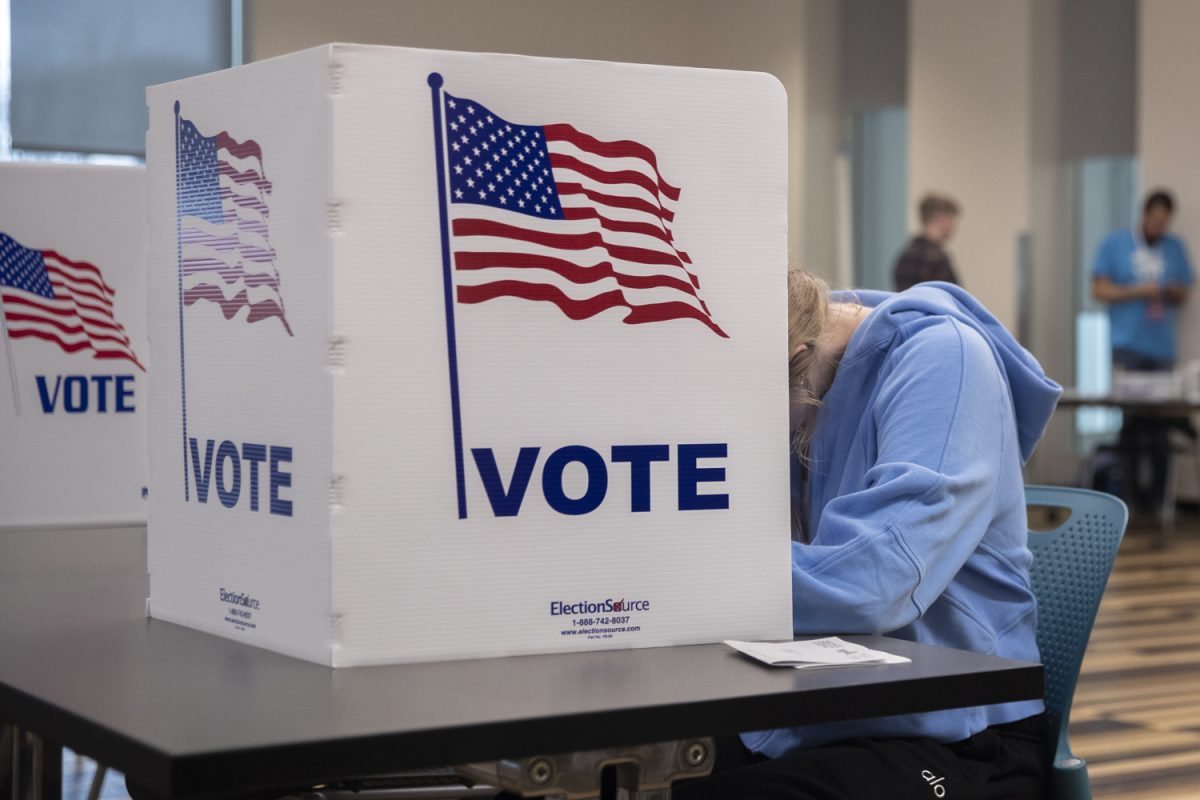On the morning of Nov. 6, I went to my local coffee shop, as I do every morning. Like many people in Iowa City, I was distraught over the results of the 2024 presidential election.
My distress must have been written all over my face, because a man approached me asking if I was alright. We chatted about the election and how we planned to move forward.
I asked if he saw this coming, to which he replied, “No. I was taken by surprise, but we have the liberal bubble to blame for that.”
I had never heard the term “liberal bubble” before, and it intrigued me. I knew that Johnson County has voted blue in recent elections, and that the University of Iowa is a liberal arts college. What I didn’t know was how that impacted our community in terms of voter turnout and election results.
Iowa City residents live in a liberal bubble, meaning the people we interact with on a daily basis will, more than likely, share our political beliefs. Cities that are considered liberal bubbles tend to have highly educated residents and more cultural amenities than cities or counties that voted red.
Iowa City residents are twice as likely to have a bachelor’s degree compared to the national average and around half of those residents go on to receive a higher-level degree.
In terms of cultural amenities, or places that contribute to residents’ quality of life, Iowa City has the Iowa Writers’ House, Hancher Auditorium, The Englert Theatre, and the Haunted Bookshop, just to name a few.
The liberal bubble played a part in the election of Donald Trump as president because voters living in those areas didn’t feel the need to go to the polls.
Between voters feeling like nothing changes no matter who is in office and the idea that Vice President Kamala Harris was the clear choice being reinforced in many news narratives, there wasn’t as much impulse for prospective voters to cast a ballot. Voter turnout overall was down compared to 2020, but it was mostly in the Democratic Party.
Another factor that contributed to the liberal bubble blinding voters is the idea of “closeted” Trump supporters. It’s more common in historically blue areas for Republicans to avoid discussing their political views in order to align their opinions with those of their community members.
Opposing political views can put a strain on relationships and lead to social repercussions like criticism from friends, family, and colleagues. There’s also a level of psychological conflict when an individual holds certain personal beliefs that don’t align with those of anyone else in their community.
The liberal bubble was not the only factor that instilled hope in Democratic Iowa voters. The Des Moines Register, among many other publications, published an article three days before Election Day claiming Harris was “leapfrogging” ahead in the polls during early voting.
Many local Iowa publications, and even Forbes, predicted Iowa would be voting blue in this election, so they spread the word. This gave Iowa Democrats a false sense of security and lessened their compulsion to go out and vote.
Independent voters also played a large role in placing Trump in the White House. The number of people voting for an independent party surpassed the amount of people voting blue and tied with the number of Republican voters.
Even though there has only been one independent party delegate who successfully made it into the White House — George Washington — the majority of Americans still identify as independent.
According to a Gallup poll taken in November, 42 percent of Americans consider themselves to be independent. This doesn’t necessarily mean they will vote for a third party candidate, as many independents lean toward the Republican or Democratic Party when it comes to voting.
Between Iowa City’s liberal bubble, the increase in independent party voting, and projected polling results, the results of the 2024 election were a shock to Johnson County residents.



